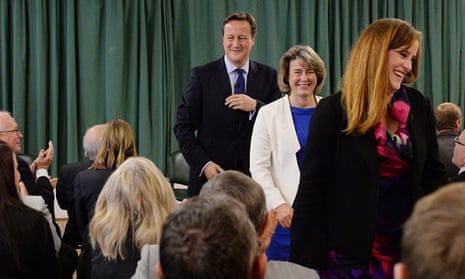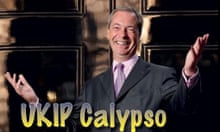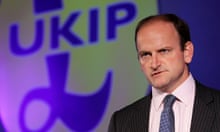The Tories’ European policy was thrown into doubt last night after Conservative MPs hinted the government might delay a vote on whether to opt back into the European arrest warrant until after the Rochester and Strood byelection.
As David Cameron sought to win back ex-Tory voters who have flocked to Ukip, by describing his planned EU negotiations as “one last go”, Conservative MPs said they had been given the impression in private by the chief whip, Michael Gove, that a second Ukip victory next month could lead to a withdrawal from the European arrest warrant.
One highly Eurosceptic minister told the Guardian: “The status quo on the EU is not acceptable. The existing arrangements are not tolerable which means we have to have radically different ones. We have an extremely good chief whip who is sound in every way.”
The signals from Gove, who has been consulting Tory MPs amid signs that the government will face a major rebellion against the European arrest warrant, came as government sources confirmed that the prime minister is planning to propose a change to the EU’s founding principle on the free movement of people.
Cameron is expected to make clear in a speech by the end of the year that he has hardened his position and has decided that restrictions will have to be imposed on citizens from current EU member states. The prime minister had said that such restrictions would only be imposed on future member states.
All Tory MPs have been invited to a breakfast meeting at No 10 tomorrow which is to be attended by Gove. The prime minister will not be present for the breakfast which is being held ahead of the second reading of Bob Neill’s private member’s bill that would introduce an EU referendum by 2017.
The hardening of the Tory position on Europe came amid fears at the highest levels of the party that the prime minister could be heading for a second successive byelection defeat at the hands of Ukip in next month’s byelection in Rochester and Strood that was triggered by the defection of Mark Reckless.
Cameron sought to show he understood the concerns of former Tory voters who are moving to Ukip by saying he would give the EU one last chance to reform in yet another hint he could be prepared to lead Britain to the exit door in the next parliament.
Speaking during a visit to Rochester, he said: “We need to bring immigration under control. That means action outside the EU, which we have done anyway, but it also means some action inside the EU. We should have one last go at negotiating a better deal.”
Government sources confirmed that the prime minister is prepared to demand a change to one of the “four freedoms” – on the free movement of people – in the treaty of Rome which established the EEC in 1957. This guarantees the free movement of people, capital, goods and services.
The prime minister had suggested in an FT article in November 2013 that he would like to limit the free movement of people for future members of the EU. But he stopped short of saying that people who have a job can be prevented from travelling from existing EU member states to the UK.
Government sources are now suggesting that concern over immigration is so great that restrictions will have to be imposed on citizens from some of the current 27 EU member states. One option gaining favour among some cabinet ministers is to invoke an emergency brake on citizens from other EU member states, such as the less well off ones in eastern Europe, if they are seen to impose an undue burden on public services.
But the European commission made clear that such a change would be incompatible with current EU law. Chantal Hughes, a European commission spokesperson, said: “Free movement of work is a fundamental principle in the EU, it is enshrined in the EU treaty, it constitutes also a central part of the single market.”
There were signs of a more immediate change in policy as Tory MPs said they had been given the impression by Gove that ministers were becoming lukewarm about continuing UK participation in the European arrest warrant.
The government is facing a rebellion of several dozen Conservative MPs over its plans to sign back up to the arrest warrant system and 34 other Europe-wide law and order measures.
The government is due to opt out of all 133 EU justice and home affairs measures. This is designed to allow the UK to negotiate with its EU partners on which measures it would like to opt back into. The coalition has agreed that it will opt back into 35 measures, including most notably the European arrest warrant that is fiercely opposed by Eurosceptics.
Critics, including a hardline group of Tory backbenchers, claim too many British citizens are sent abroad for trial to other European countries under the powers while its supporters argue it is a vital crime-stopping force that helps bring criminals to justice.
A decision has to be made by 1 December. But negotiations have stalled because Spain is using its veto power to demand concessions from the UK over Gibraltar. Tory MPs say that Gove has suggested to them that the vote could be delayed until after the byelection. Some have said the chief whip has suggested that British involvement in the arrest warrant could be scrapped altogether as the price of saving Cameron’s leadership after a second Ukip byelection win.
Bill Cash, the veteran Tory Eurosceptic who is chairman of the Commons European scrutiny committee, said that ministers would face a major rebellion.
He said: “If they were to decide not to go ahead [with the EAW] it would save them an awful lot of trouble because there will be a big rebellion over it. Whether that will be enough in itself – because there are 34 other measures – is a moot question.”
A change in position on the 35 measures would provoke a coalition row. The decision to opt back into the EAW and the other 34 measures was agreed by Cameron and Nick Clegg.
The disclosure about Gove’s involvement was reported by the Spectator. It quoted one MP as saying: “The way it was broached to me was what would I think if we just did not opt back into the European arrest warrant? I thought this was better late than never and it must be that there is movement in No 10 on this.”
Asked about these talks while canvassing in the Rochester and Strood byelection, the chief whip would only say: “The whips office is constantly in touch with lots of MPs on lots of issues all the time.”
Pressed again on whether he would like to see the UK stay out of the EAW, he did not repeat the government’s official position of support for retaining the measure, saying: “I am engaged as chief whip in simply making sure I have an opportunity to talk to lots of colleagues about lots of issues all of the time.”
Asked again what he had discussed with Conservative MPs about the EAW, he said: “By definition, conversations that I’ve had with MPs are confidential, I’ve got to respect their confidences so I can’t really talk about the range of issues or the views they express ... My job is to find out what people’s views are and to make sure the prime minister and the cabinet are always aware of a range of views on a range of issues.”








Comments (…)
Sign in or create your Guardian account to join the discussion